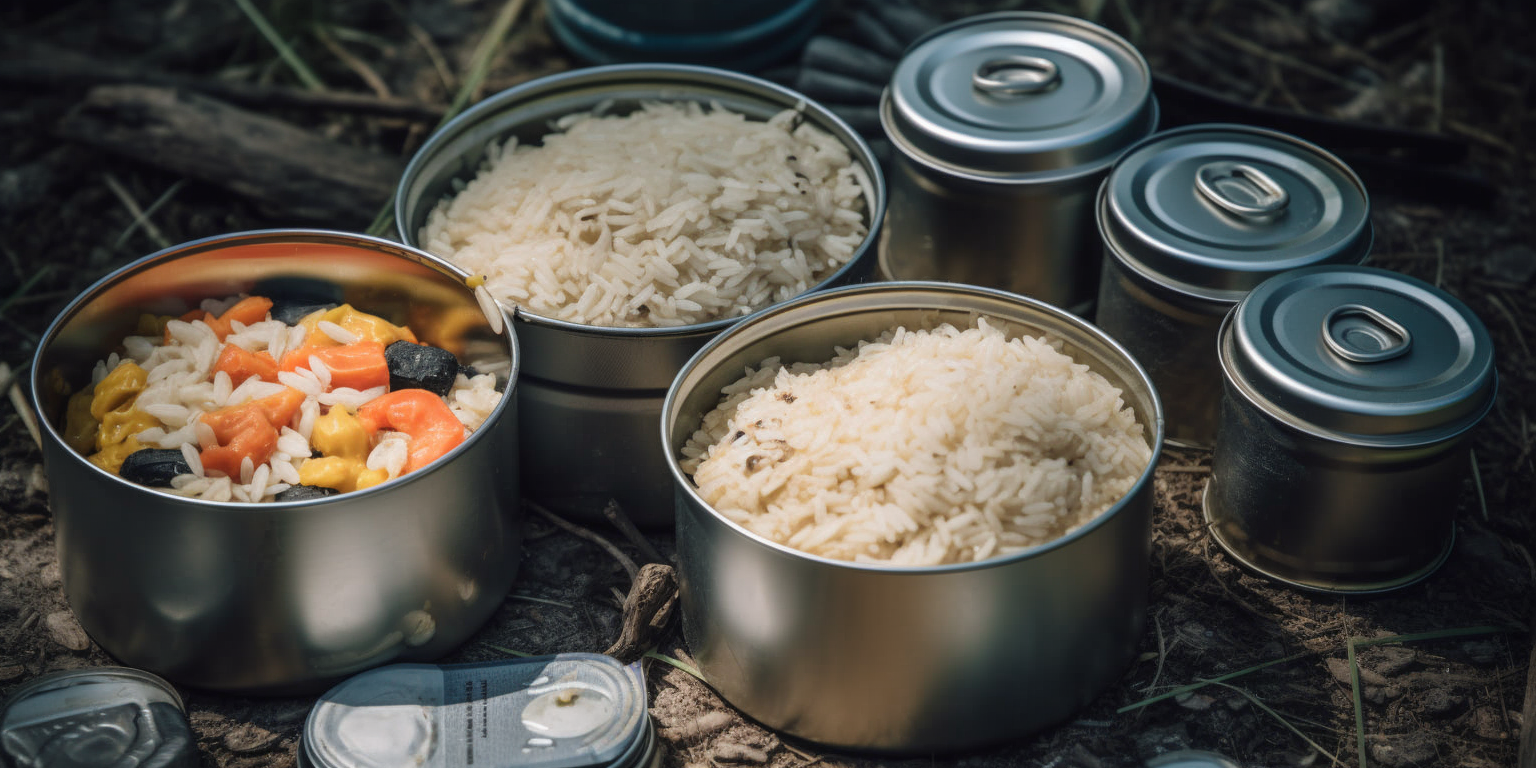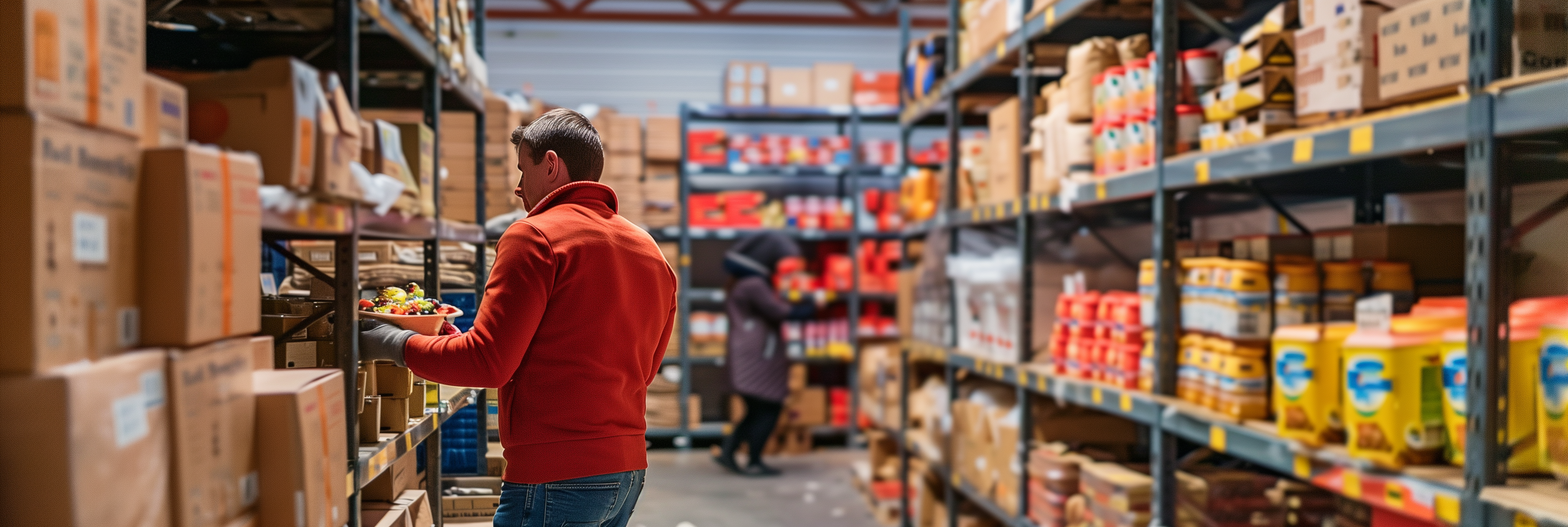
Emergency Food Supply for Aging Populations: Tips and Strategies
Emergency Food Supply for Aging Populations: Tips and Strategies
Introduction
As the UK's population continues to age, the need for adequate emergency preparedness becomes increasingly important. According to the Office for National Statistics (ONS), 18% of the population in the UK was aged 65 years or over in 2020. Ensuring that older adults have a well-planned emergency food supply can be crucial in maintaining their health and wellbeing during unforeseen events. In this article, we'll explore tips and strategies for building an emergency food supply tailored to the specific needs of older adults.
- Consider dietary needs and preferences
Older people may have specific dietary requirements, such as low-sodium or diabetic-friendly options, due to various health conditions. When building an emergency food supply, take into account these needs and include food items that meet their nutritional requirements. Additionally, consider any food allergies or intolerances, as well as personal preferences, to ensure the food supply is both safe and appealing.
- Prioritise nutrient-dense foods
As we age, our nutrient needs may increase while our calorie requirements decrease. Prioritise nutrient-dense foods that provide essential vitamins, minerals, and fibre. Focus on including items such as whole grains, canned fruits and vegetables, lean proteins, and healthy fats in your emergency food supply.
- Focus on easy-to-prepare meals
In emergency situations, older adults may face challenges with meal preparation due to physical limitations or lack of access to cooking facilities. Choose foods that are easy to prepare and require minimal cooking, such as canned soups, pre-packaged meals, and instant porridge.
- Account for special equipment
If an older adult requires special equipment for food preparation, such as a can opener, ensure it is included in their emergency kit. Consider including utensils that are designed for individuals with limited dexterity, like easy-grip cutlery or non-slip plates.
- Plan for a two-week supply
The UK government recommends having a two-week emergency food supply for any unforeseen event. For older adults, this means having enough food to meet their daily caloric and nutritional needs for 14 days. Keep track of expiration dates and rotate food items as needed to maintain the quality and safety of the supply.
- Don't forget about hydration
Hydration is especially crucial for older adults, as they may be more susceptible to dehydration due to age-related physiological changes. Ensure that a sufficient amount of water is included in their emergency supply. The European Food Safety Authority (EFSA) recommends a daily water intake of 2.0 litres for women and 2.5 litres for men.
- Include essential medications and supplements
Older adults often rely on medications and supplements to manage chronic conditions. Ensure that a two-week supply of necessary medications is included in their emergency kit, along with any essential supplements, such as calcium or vitamin D.
- Collaborate with healthcare professionals
Consult with healthcare professionals, like a registered dietitian or a general practitioner, to ensure the emergency food supply meets the specific needs of the older adult in question. They can provide guidance on appropriate food choices and quantities based on individual health conditions and requirements.
- Educate and involve older adults
Involving older adults in the planning and preparation process can help them feel more empowered and confident in their ability to manage emergency situations. Educate them on the importance of having an emergency food supply and discuss the strategies for building and maintaining it.
- Plan for mobility and accessibility
Older adults may face mobility challenges or require assistive devices, such as walkers or wheelchairs. Ensure that the emergency food supply is stored in an easily accessible location that takes into account any mobility limitations. This will help to prevent unnecessary strain or injury when accessing the supply during an emergency.
- Include comfort foods
While the focus should be on nutrient-dense and easy-to-prepare foods, don't forget to include a few comfort items in the emergency food supply. Comfort foods can help improve morale and provide a sense of familiarity during times of stress. Consider adding items like biscuits, tea, or chocolate to the emergency kit as a source of comfort and enjoyment.
- Prepare for pet needs
Many older adults have pets that provide companionship and emotional support. Don't forget to include a pet emergency supply in the overall plan, ensuring that pets have enough food, water, and necessary medications for a two-week period.
- Keep important documents and contacts handy
In addition to the emergency food supply, ensure that older adults have easy access to important documents such as identification, medical records, and insurance information. Create a list of emergency contacts, including family members, healthcare providers, and local emergency services, and store it with the emergency kit.
- Encourage regular check-ins
Encourage family members, friends, or neighbours to check in with older adults regularly, particularly during emergencies. This not only helps ensure their safety and wellbeing but also provides an opportunity to update and replenish the emergency food supply as needed.
Conclusion
Proper planning and consideration of the unique needs of older people can help them maintain their health and wellbeing during emergency situations. By involving them in the planning process, collaborating with healthcare professionals, and paying attention to dietary requirements and accessibility, you can create an effective and tailored emergency food supply for aging populations. With a well-prepared emergency plan in place, older people can feel more secure and confident in their ability to navigate unforeseen events.
Suggested Articles
Cooking with Freeze-Dried Foods: Creative Recipes for Camping and Emergency Situations
Freeze-dried foods have revolutionized the way we approach cooking in outdoor and emergency scenarios. These lightwei...
Emergency Food for Low-Income Individuals: Access and Affordability in Times of Crisis
During times of crisis, securing basic necessities becomes a challenge, with food security becoming an urgent concern...
The Role of Emergency Food in the UK's Search and Rescue Operations
In the context of search and rescue (SAR) operations in the United Kingdom, the significance of emergency food cannot...




